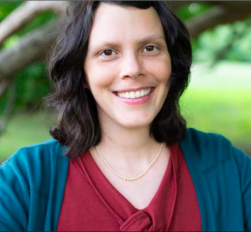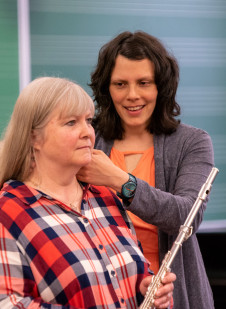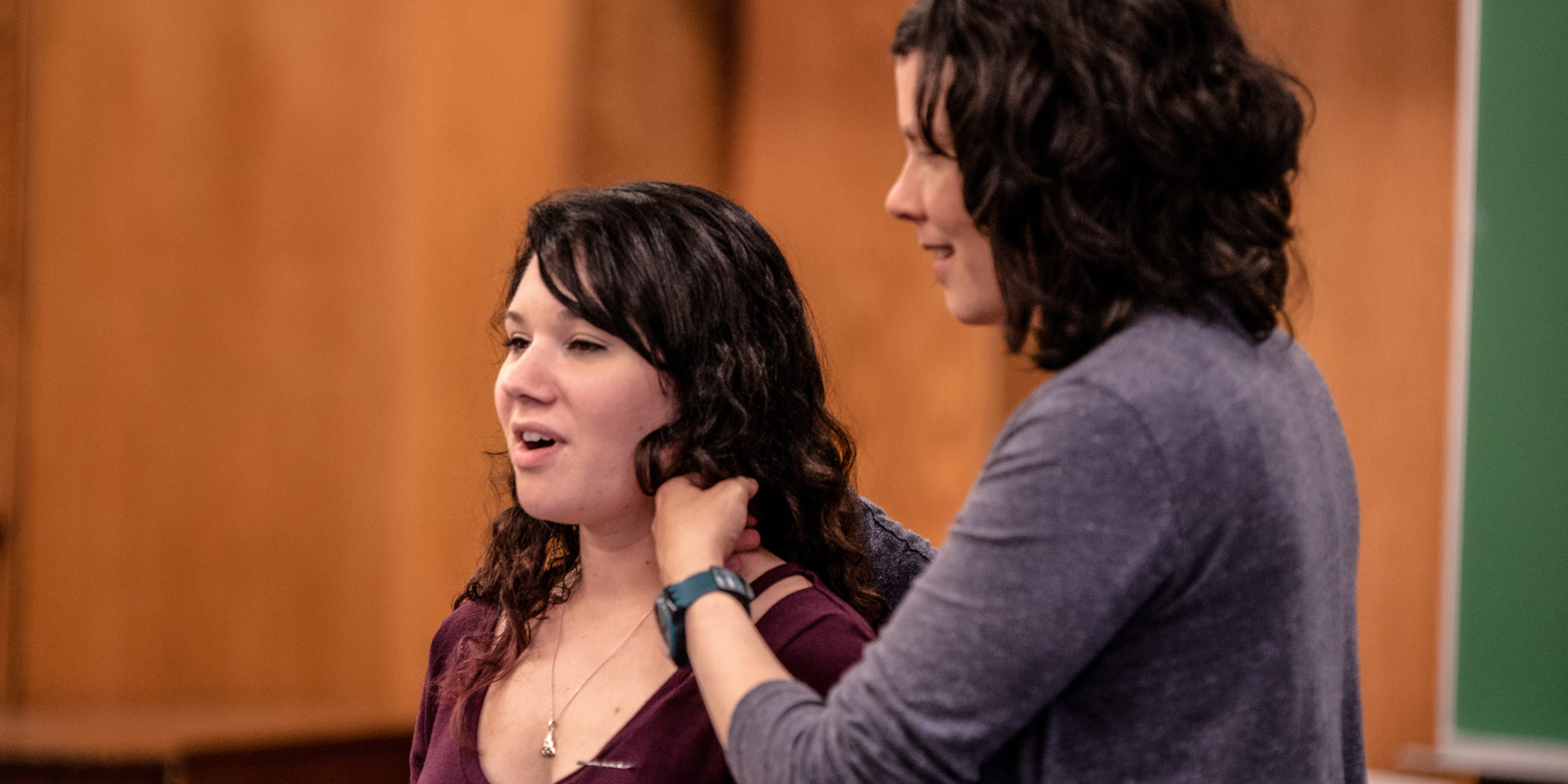As a former student of Eastman’s Alexander Technique instructor Katie Fittipaldi, Summer@Eastman’s Marketing Assistant and violist Joyce Tseng has had firsthand experience with how Alexander Technique (AT) improves ease and freedom of movement. Katie has guided Joyce to use conscious intention of awareness in her playing and has helped Joyce overcome performance anxiety through the reeducation of automatic reaction. Joyce was excited to interview Katie to help prospective participants learn more about the program.

Katie Fittipaldi, Alexander Technique Instructor at Eastman
JT: How would you describe Alexander Technique (AT) to someone who has never taken a lesson?
KF: What a great question! Well, I might start where it all began . . . Alexander Technique came into being because an actor, FM Alexander (1869-1955), kept losing his voice during performances and didn’t know why. This prompted him to pay more attention to himself and after a while he started to become aware that his neck tightened quite a bit when speaking–so much so that his head was quite stuck on the top of his spine, which was putting all sorts of pressure and strain on his voice.
So, at the gooey center, an Alexander approach involves curiosity. Curiosity about what we are doing and whether or not we are getting in our own way, and of course, part of the AT skill set includes how to get out of our own way if we find we are making things harder than they need to be.
JT: What are the benefits of AT for Musicians and Music Educators?
KF: Oh – so many benefits!
The basic AT skill set includes being able to:
- Pay attention in a way that is clear and effective yet also easeful and kind.
- Stay calm, connected, and curious even when faced with a challenge.
- Think constructively so that we are very likely to succeed!
Having an AT skill set as part of your musician’s ‘toolbox’ can offer support to your practice and performance, prevent injury and discomfort, help overcome performance anxiety, and so much more!
JT: Who should participate in this workshop?
KF: Anyone who is interested in learning how to access more ease, creativity, authentic expression, consistency, clarity, enjoyment and success in practice, performance, or teaching! All are welcome – from musicians/educators who are just beginning their adventure to seasoned professionals.
JT: What is a sample day like at the workshop?
KF: The online course is a 6-session workshop meeting once a week. Each student will also have 1 individual lesson with me and there will be some light activities between classes just to keep things lively!
The in-person course is more intensive. We’ll be meeting Friday-Sunday and the structure of each day will look something like this:
9-12 Class
12-1 Lunch
1-3 Class (or individual lessons)
*All culminating with a friendly, informal performance on the last day.
JT: This course is offered online and in-person – what are the benefits of each? 
KF: Well, one of the courses is online and spread out over 6 weeks whereas the other is in-person and concentrated into a weekend. Both courses will cover all the AT essentials, but participants can choose the format they prefer in regards to time, travel, or mode (in-person vs online).
JT: Should participants bring their instruments?
KF: Yes, please! As we explore AT together, music will be our primary activity, so participants will have many opportunities to connect what we are learning to playing/singing.
JT: How would you describe your teaching style?
KF: Creating a safe space for learning is a top priority for me, so we’ll be operating in a class community where it’s okay to try something new, make mistakes, and grow and learn without fear of embarrassment or criticism. Everyone feeling safe is really important to me and provides tremendous support for our learning.
One of the things I love about teaching is being able to bear witness to each person’s process with the material. AT skills percolate and grow uniquely for each person – there’s no ‘one’ way or ‘right’ way for this process to unfold, so it’s quite varied and interesting to see how things proceed. I find it beautiful and special to simply give space for that to happen.
I like presenting ideas in a way that is playful and experiential – sometimes music can get so serious, but if we can get things done, grow and improve and have fun along the way – why not?
***
Alexander Technique classes are available in two formats this summer: an in-person weekend intensive (July 7-9, 2023) and a six-week, once-per-week online course (June 26-August 4, 2023). Visit course web pages for more information.
